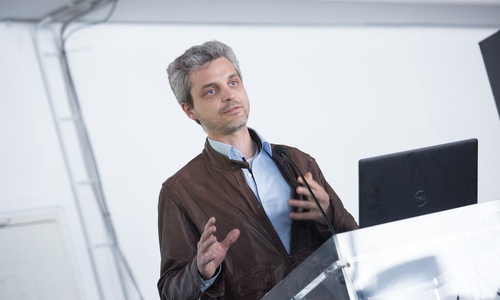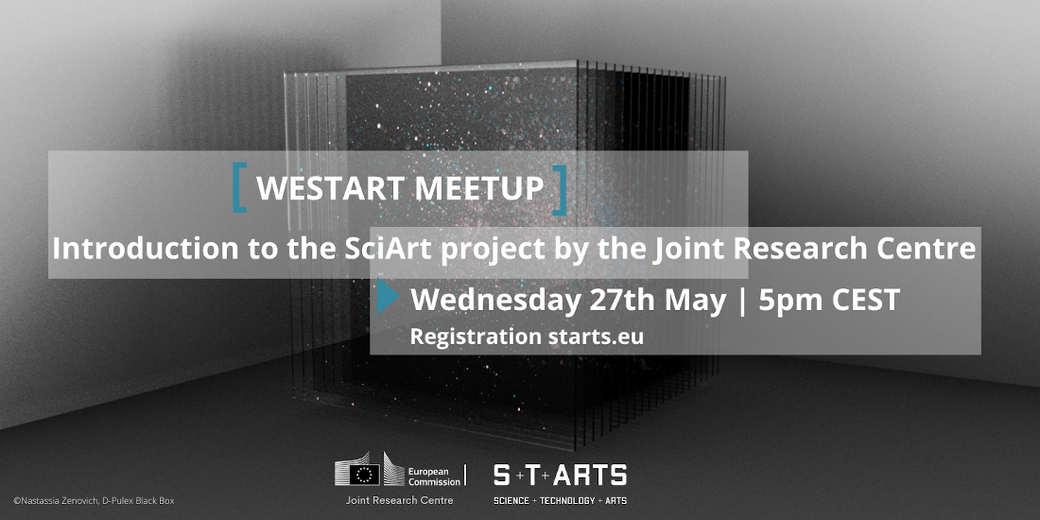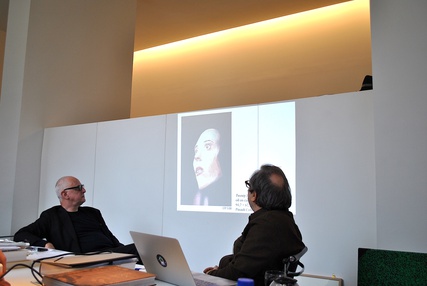The weekly WESTART sessions aim at creating a space to exchange and to reflect on the role of the arts towards a more inclusive and sustainable future. Within this mission, we are inviting like-minded peers (artists, curators, organisations, etc.) beyond the STARTS community to present their operation and mission to the STARTS community.
For the upcoming WESTART session we invited the Joint Research Centre of the European Commission to present the operation and mission of their SciArt project.
The Joint Research Centre (JRC) is the European Commission's science and knowledge service which employs scientists to carry out research in order to provide independent scientific advice and support to EU policy. The JRC has a strong interest in working with the arts as part of its multi-disciplinary support to EU policy making. To that end it established a project in art and science: SciArt.
The Joint Research Centre's SciArt project investigates the overlapping fields where art and science operate, their similarities of method and commonalities of approach. The assumption is that after centuries of estrangement, both bodies of knowledge are converging again in a new constitution/constituent of knowledge, freed from the limits inflicted by arbitrary disciplinary codes. The project does this as a JRC project, linking art as well as science to policymaking and hence, to society. The flagship initiative of the project is the Resonances Festival, held every two years at the JRC in Ispra, close to Lago Maggiore in Italy. Resonances Festival brings together scientists, artists and policy makers to discuss matters of concern, not only to the JRC and the European Commission but also more widely to society.
Program of the session
5.00 – 5.05 Introduction by Christophe De Jaeger
5:05 – 5:30 Presentation by Adriaan Eeckels
5:30 – 5:45 Discussion moderated by Christophe De Jaeger
5:45 – 6:00 Q&A
6:00 End of the session
Meet the speakers
Adriaan Eeckels, head of the SciArt project of the Joint Research Centre (JRC)

Adriaan Eeckels (1960) is a historian, humanist and semiotician. Since his university years, he has been testing boundaries, also between art and science. As a thesis proposal, he investigated the epistemological properties of the narrative in historical research, by applying semiotics in historical research with a focus on the history of mentalities in Quattrocento Florence. He describes himself as an intellectual vagabond and pontifex minimus traveling along borders and interstices of various disciplines, with a great interest in knowledge acquisition and the history of sciences. Most of his career has taken place in the European Institutions: from the Schengen Secretariat, through the European Court of Justice to the European Commission, in Luxembourg, Brussels and Ispra, Italy. He has carried out important projects in Document and Quality Management. Since 2016 he is leading the SciArt project of the Joint Research Center (JRC) of the European Commission.
Christophe De Jaeger, founder & director GLUON and director BOZAR LAB

Christophe De Jaeger (1979) is an art historian and curator specializing in media art and collaborative practices between art and research. Christophe de Jaeger obtained a master's degree in Art History at Ghent University and a master's degree in Arts & Technology at the University of Plymouth.
As a freelance curator he has realized exhibitions with media artists in Belgium, the USA, Shanghai (China), and Milano (Italy). He is the coordinator of the department BOZAR Lab (Center for Fine Arts Brussels) and founder of GLUON, a platform for art, science & technology (Brussels). In 2016, Christophe De Jaeger initiated the Scientist-In-Residence program in collaboration with Gerfied Stocker (Director Ars Electronica), Paul Dujardin (director BOZAR) and Hans Ulrich Obrist (Director Serpentine Gallery). The programme encourages renowned contemporary artists to host a scientist or researcher in the independent & inspiring environment of their studios, reversing the usual approach whereby artists are invited to work at R&D departments of universities or companies.
Join the discussion on Wednesday 27th May at 5pm CEST to be part of the exchanges!



.png/westart_ofudamento_(2)-427x286-1x0.5.png)
